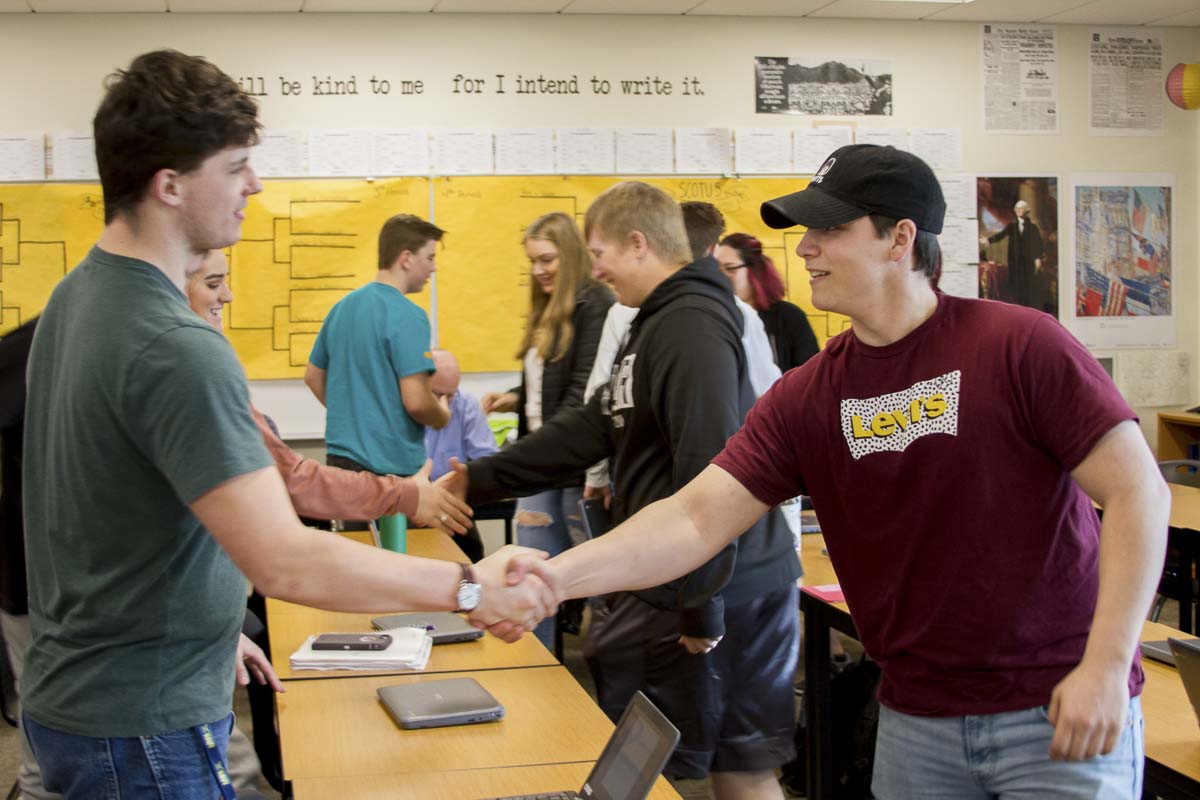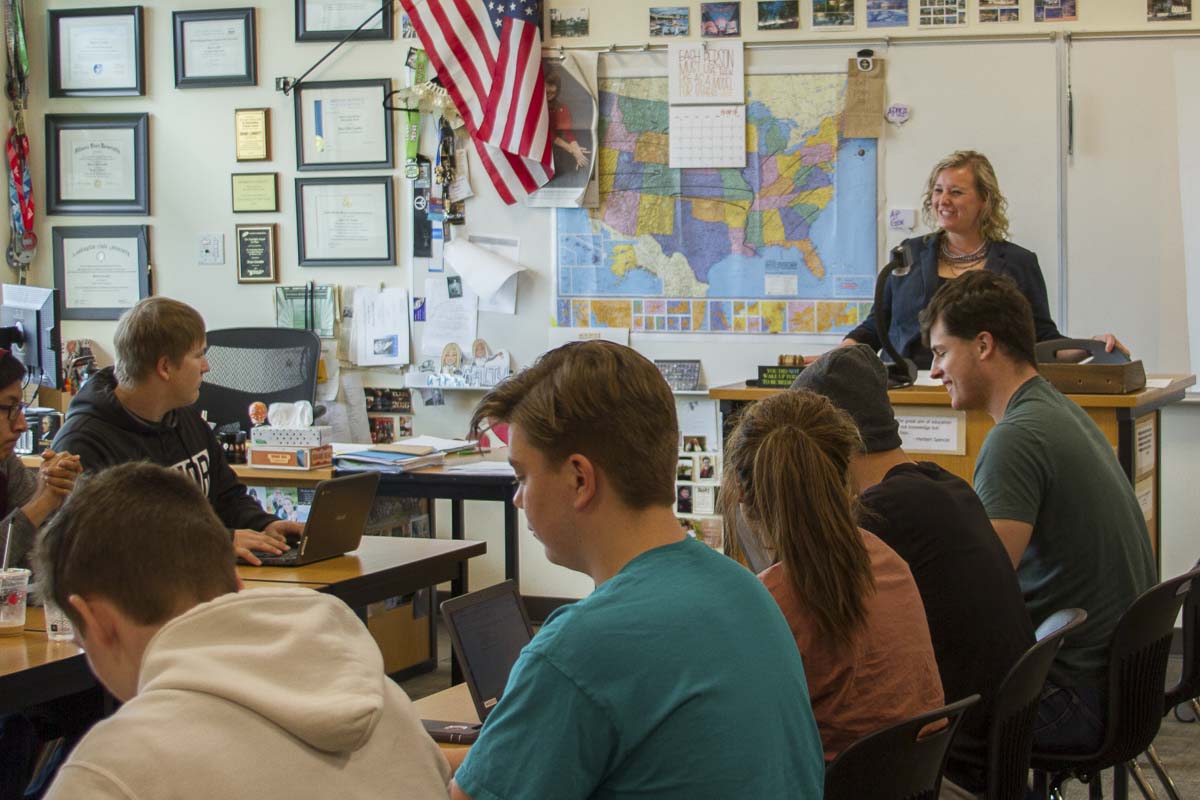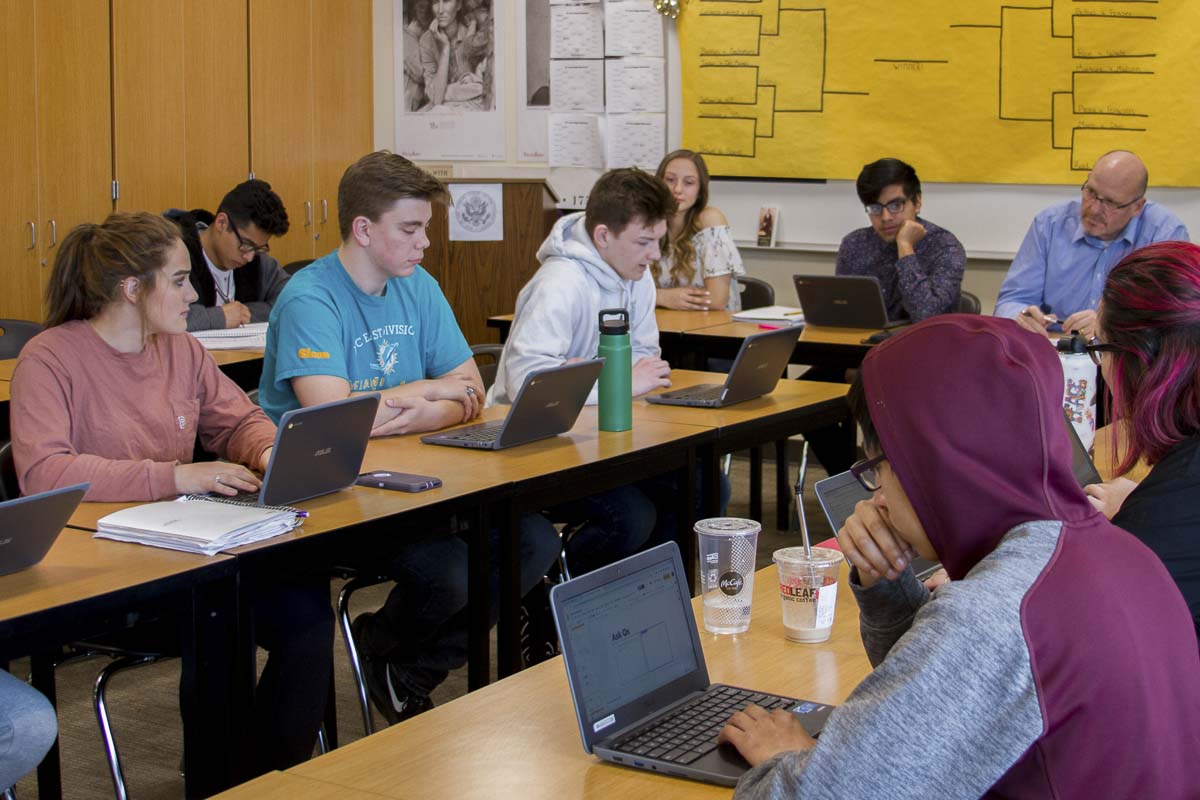Exercise was to determine which ones have the most significance on American society
WOODLAND — AP Government students at Woodland High School get in on March Madness each year by debating the merits of 16 different Supreme Court cases to determine which ones have the most significance on American society.

Sharon Conditt, WHS government teacher, came up with the idea of an annual class project around March Madness after attending a social studies conference.
“I watched a presentation about how a teacher used the bracketology craze associated with March Madness to get his students interested in key figures in U.S. history,” she recalled. “I took the idea and incorporated teamwork combined with skill development in crafting effective and convincing arguments and created the March Madness debates.”
Students form four teams to debate the significance of 16 famous Supreme Court cases chosen from the 32 they have studied throughout the school year. Teams debate why their case holds more significance than their opponent’s in a traditional debating style where one team presents an argument followed by rebuttals and counter-arguments, all timed so students must create concise arguments and responses. Students use Chromebooks and cloud computing throughout the project to research cases, create arguments and even brainstorm rebuttal during the live debates.

Students choose roles on their team which fit their personal strengths including speakers, researchers, and notetakers.
“Some of my students know that they can listen to and dissect an argument, so those students will take notes on the team’s shared Google doc while other students may take on different roles for different cases,” explained Conditt. “It’s entirely up to the team as to how they want their dynamic to work.”
Adult volunteer judges observe the debates and select the winners for each round. Judges include school employees ranging from secretaries and athletic coaches to school administrators as well as the district superintendent. Judges receive ballots for each case, scoring the quality of the arguments presented by the teams. The winning teams advance in the tournament and argue against other teams.
“There is no way we could do this project without the help and support of our building and district staff,” said Conditt. “I am so thankful for the Beaver Pride!”
Conditt uses the assignment to teach students how to develop academic arguments and utilize effective communication skills.
“Arguing the significance of a particular case requires students to make a judgment call – they have to establish a value and craft arguments around that value,” she explained. “A team may decide that one case is significant because it fundamentally changes how a population is treated in society whereas another team may establish that their case is more significant because it strengthens a branch of the U.S. government – both are valid arguments but the real work for the teams is having to convince the judges that one value is more important than another.”

Students also learn how to debate arguments without making the argument personal. “Students learn creative problem-solving by thinking on their feet,” said Conditt. “Arguments must be based on skill and content which can feel different to students who might not have much experience with debating techniques.”
Conditt’s favorite part of each year’s debates comes from seeing the students engage with the arguments they make. “They learn more than just the cases featured in the tournament – they learn how to engage with an opposite viewpoint in a diplomatic and professional manner,” she said. “Students also learn the importance of teamwork by capitalizing on their teammates’ strengths and communicating effectively; skills they will use on a daily basis once they graduate and start their careers.”
Condit’s motivation to develop new projects and coursework comes from watching her own students learn.
“My students inspire me and they deserve the best I can give them each and every day,” she said. “I am always looking for new ideas to engage them and push their abilities so we can celebrate our strengths and overcome weaknesses both as individuals and as a class.”
Information provided by Woodland School District.




